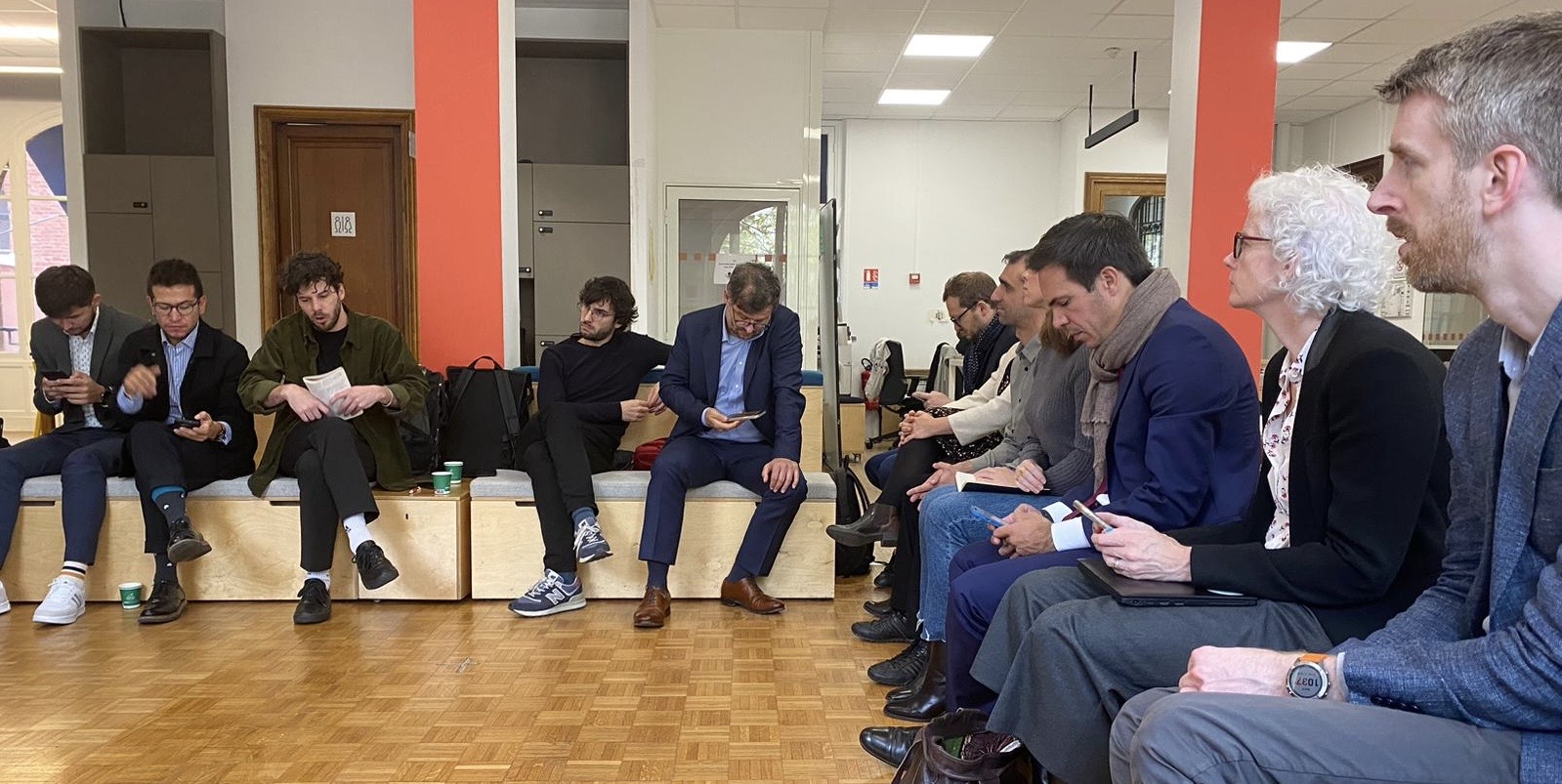
Voices from the South Newsletter

Octavio Del Favero Bannen
Octavio Del Favero Bannen is a democracy activist and is the director for Fundación Ciudadanía Inteligente (Smart Citizen) in Chile. He is a lawyer, and his work focuses on efforts to reform and democratize political institutions in Chile and Latin America.
In a world driven by rapid technological advancements, the intersection between politics and technology has given rise to “Civic Tech”—a concept aimed at enhancing democracy through digital innovation.
Recently, the OECD Government department convened a multistakeholder meeting to deliberate the role of Civic Tech in modern society, defining it as “the use of digital technologies to bolster democracy by informing the public, facilitating participation in decision and policy-making, and enhancing governments’ responsiveness and accountability.”
The apparent consensus during the meeting (from both North and South voices) was that after many years of active innovation, Civic Tech has not fully realized its promise of improving democracy. While the promise of Civic Tech to reshape politics and governance is still there, it faces numerous challenges that have hindered its impact. This has left a significant gap between institutions and citizens that technology alone cannot bridge.
The digital divide
One of the primary challenges that has hindered the opportunity for digital tools to have impact on democracy stems from the political context.
Even in the digital realm, material inequalities still persist.
The digital space is still often controlled by those with more resources, both on a global level – but also within societies.
Realizing the potential of Civic Tech necessitates active and engaged communities to be a path for new and transformative voices.
Organizations like Ciudadanía Inteligente have acknowledged this imperative and initiated capacity-building programs for social activists globally, empowering them to amplify their agendas in the digital arena. These were created in solidarity with those with unequal access to digital tools – and anchored through the lens of the experiences from the global South (specifically the experiences in Latin America).

In essence, building political power through technology requires the active involvement of citizens and movements to generate real change, while also bridging this digital divide.
Institutional rules limiting citizen input
Another critical challenge resides within the institutional context.
Even the most advanced technologies prove ineffective without institutional channels and incentives that mandate elected officials to consider and respond to citizens’ inputs. Existing institutional rules and inertia often hinder the influence of citizen inputs into the political debate.
To overcome this challenge, advocacy for institutional reforms and structural changes within representative institutions is essential. Without these changes, the impact of new technologies on democracy remains constrained.
For example, in 2022 in Chile, the past Constitutional Convention implemented the Citizen Initiative of Norm, a participatory mechanism embedded into the constitution-writing body through which citizens could propose constitutional content for the debate. The rules for the mechanism set that if a citizen proposal reaches 15,000 signatures from the public, the representatives should discuss and vote on the proposals. This instance shows that connecting digital participation and institutional deliberation is possible.
The privatization of the digital space
Furthermore, the digital context itself significantly affects the efficacy of Civic Tech. Presently, the Internet is predominantly privatized, and information primarily flows through social media platforms owned by some of the world’s wealthiest individuals, primarily for commercial purposes.
This situation promotes an environment conducive to misinformation and polarization, leaving minimal room for genuine political deliberation on social media. Given that the digital space is dominated by a select few, prospects for a genuinely democratic digital realm appear dim.
To fight this problem, it is urgent to push for new frameworks for digital platforms, mainly promoting transparency and making big companies accountable for misinformation and digital violence, among other phenomena. Additionally, we should continue to create autonomous and geographically located technological networks and tools that answer local problems and have a responsive relationship with communities.
Building political power through technology requires the active involvement of citizens and movements to generate real change, while also bridging this digital divide.
– Octavio Del Favero

Photo: Octavio Del Favero (Chile) speaks at the international OECD roundtable on the future of “civic tech”.
The need for broader democratic reforms
Addressing these challenges necessitates embedding Civic Tech efforts within a broader democratic reform agenda.
First, this approach entails recognizing the limitations of our electoral democracies. It also requires advocating for new systems that transcend elections as the sole means of representing citizens’ demands.
Thus, continuous participation must be acknowledged as a fundamental right for citizens, exercised through several institutional citizen-initiated mechanisms to which elected officials are obliged to respond. A fundamental shift in the game’s rules is imperative to empower organizations and social movements to participate meaningfully in decision-making processes.
Second, a reevaluation of our representative institutions is essential.
Reforms in our governments aimed at promoting gender parity, providing special seats for indigenous people, and implementing proportional systems, among other changes, should be considered. These reforms are crucial to fostering a more inclusive democracy that genuinely reflects the diverse voices of the people.
Unlocking the potential of civic tech
Civic Tech remains a promising avenue for enhancing democracy, and it is good news that intergovernmental forums are actively addressing this issue. However, to unlock its full potential, we must confront broader and more pressing challenges.
The political, institutional, and digital contexts present formidable obstacles – especially in the global South – that technology alone can only surmount with a cohesive political movement for change.
Bridging the gap between institutions and citizens needs the establishment of active communities, citizens advocacy for institutional reforms, and the restructuring of our representative institutions to reflect the diverse voices of society more accurately. Only then will we be able to improve democracy in the digital age.
